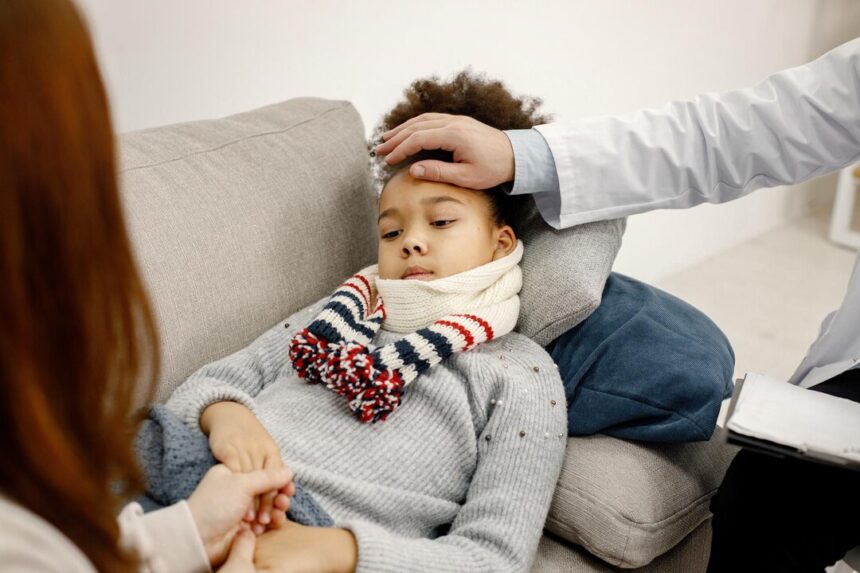Meningitis is a serious condition characterized by inflammation of the protective membranes covering the brain and spinal cord. While meningitis can affect individuals of any age, children, especially infants, are particularly vulnerable. Understanding the signs, treatment options, and prevention strategies is crucial for parents and caregivers to safeguard the health of children. In this article, we delve into meningitis in children, exploring its signs, treatment approaches, and preventive measures.
What is Meningitis?
Meningitis refers to the inflammation of the meninges, the protective membranes surrounding the brain and spinal cord. It can be caused by bacteria, viruses, fungi, or other microorganisms. Bacterial and viral meningitis are the most common forms in children.
Signs and Symptoms:
Recognizing the signs and symptoms of meningitis is essential for early detection and prompt treatment. Common symptoms in children include high fever, severe headache, stiff neck, sensitivity to light, nausea, vomiting, confusion, irritability, and seizures. In infants, symptoms may also include a bulging fontanelle (soft spot on the head), poor feeding, and high-pitched crying.
Diagnosis:
Diagnosing meningitis in children typically involves a combination of clinical evaluation, medical history review, and diagnostic tests. These tests may include blood tests, lumbar puncture (spinal tap) to collect cerebrospinal fluid for analysis, imaging tests such as CT scans or MRIs, and cultures to identify the causative organism.
Treatment:
Treatment for meningitis depends on the underlying cause. Bacterial meningitis is a medical emergency and requires immediate hospitalization and treatment with intravenous antibiotics. Viral meningitis, which is more common and usually less severe, may not require specific antiviral medication and often resolves on its own with supportive care such as rest, hydration, and pain relief.
Complications:
Meningitis can lead to serious complications, especially if left untreated or if treatment is delayed. Potential complications include hearing loss, brain damage, seizures, developmental delays, and in severe cases, death. Prompt diagnosis and appropriate treatment are essential to minimize the risk of complications.
Prevention Strategies:
Vaccination is one of the most effective ways to prevent certain types of bacterial meningitis in children. Vaccines against Haemophilus influenzae type b (Hib), Streptococcus pneumoniae, and Neisseria meningitidis are routinely recommended for infants and young children. Additionally, practicing good hygiene, such as frequent handwashing, avoiding close contact with sick individuals, and ensuring up-to-date vaccinations, can help reduce the risk of meningitis.
Educating Parents and Caregivers:
It is essential to educate parents and caregivers about the signs and symptoms of meningitis, the importance of timely medical attention, and preventive measures such as vaccination and hygiene practices. Increasing awareness can empower parents to recognize potential signs of meningitis and seek prompt medical care for their children.
Seeking Medical Attention:
Parents should seek immediate medical attention if their child exhibits symptoms suggestive of meningitis, such as fever, severe headache, neck stiffness, or changes in behavior. Early diagnosis and treatment can significantly improve outcomes and reduce the risk of complications associated with meningitis.
Follow-Up Care:
Children recovering from meningitis may require ongoing medical follow-up to monitor their progress, manage any lingering symptoms or complications, and ensure optimal recovery. Follow-up care may include repeat evaluations, hearing tests, developmental assessments, and counseling for parents and caregivers.
Meningitis in children is a serious condition that requires prompt recognition, diagnosis, and treatment. By understanding the signs, treatment options, and preventive measures, parents and caregivers can take proactive steps to protect the health and well-being of their children. Vaccination, good hygiene practices, and early medical intervention are key components in the prevention and management of meningitis in children, ensuring a brighter and healthier future for our young ones.










